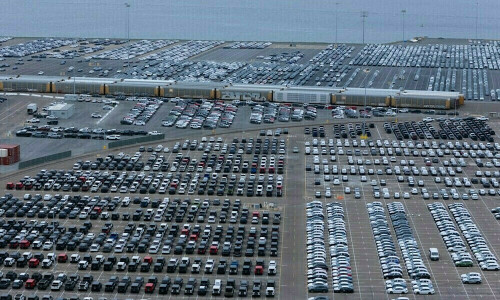Trump Administration to Ease Auto Tariff Impact with New Executive Order
The U.S. government is set to introduce an executive order to mitigate the effects of previously imposed auto tariffs. This order will provide a combination of credits and exemptions from other levies on automotive parts and materials. The decision follows extensive discussions between automakers and the administration.
Details of the Tariff Adjustments
Under the revised tariff structure, automotive manufacturers will receive credits for up to 15% of the total value of vehicles assembled within the country. These credits can be utilized to offset the costs of imported parts, allowing a transitional period for supply chains to be relocated back to the United States, according to a senior official.
How the Credits Will Work
The government official explained that this would enable automakers to import parts without incurring duties, equivalent to approximately 3.75% of the retail price of domestically manufactured vehicles in the first year. This benefit will decrease to 2.5% in the subsequent year and will be phased out entirely in the third year to encourage the relocation of parts production to the U.S.
Broader Tariff Relief
Additionally, vehicles and parts affected by these tariffs will be exempt from other tariffs imposed, which include duties on goods from Canada and Mexico, levies on steel and aluminum, and duties applied to numerous other nations.
USMCA Compliance
The revised policy also extends a duty-free provision for North American components that adhere to the rules of origin as defined in the U.S.-Mexico-Canada Agreement (USMCA).
The official stated that assembling vehicles elsewhere and importing them would result in a significant disadvantage.
In the context of metal tariffs, automakers will be required to pay either the vehicle tariff or the steel and aluminum tariffs, whichever is higher, according to the official.
Exclusion of China
According to a White House representative, the tariff relief will not be applicable to parts originating from China. These components will remain subject to existing tariffs, which could amount to at least 145% in addition to prior duties.
Industry Reaction
Executives from major automotive companies such as General Motors, Ford, and Stellantis expressed their support for the impending changes ahead of the formal signing of the order.
The CEO of General Motors, stated that the president’s guidance is instrumental in establishing a fair environment for companies like GM and enabling increased investment in the U.S. economy.
The CEO of Ford remarked that the adjustments would help alleviate the impact of tariffs on automakers, suppliers, and consumers.
The Chairman of Stellantis conveyed the company’s anticipation of ongoing collaboration with the administration to bolster the competitiveness of the American auto industry and foster exports.
Continued Uncertainty
Despite the positive feedback, uncertainty persists within the automotive sector due to trade policy fluctuations. General Motors withdrew its annual forecast, despite reporting robust quarterly sales and profits. The company also postponed a conference call with analysts until more details about the tariff changes become available.
An industry leader noted that while automakers would appreciate any exemptions, trade policy uncertainty remains a concern. They highlighted the rapid and unpredictable nature of tariff proposals and revisions, which complicates broader business strategy decisions for automakers.
Last week, a coalition of U.S. auto industry groups cautioned against imposing 25% tariffs on imported auto parts, citing potential reductions in vehicle sales and increased prices. The industry groups had previously communicated their concerns to key government officials.



Comments (0)
No comments yet. Be the first to comment!
Leave a Comment